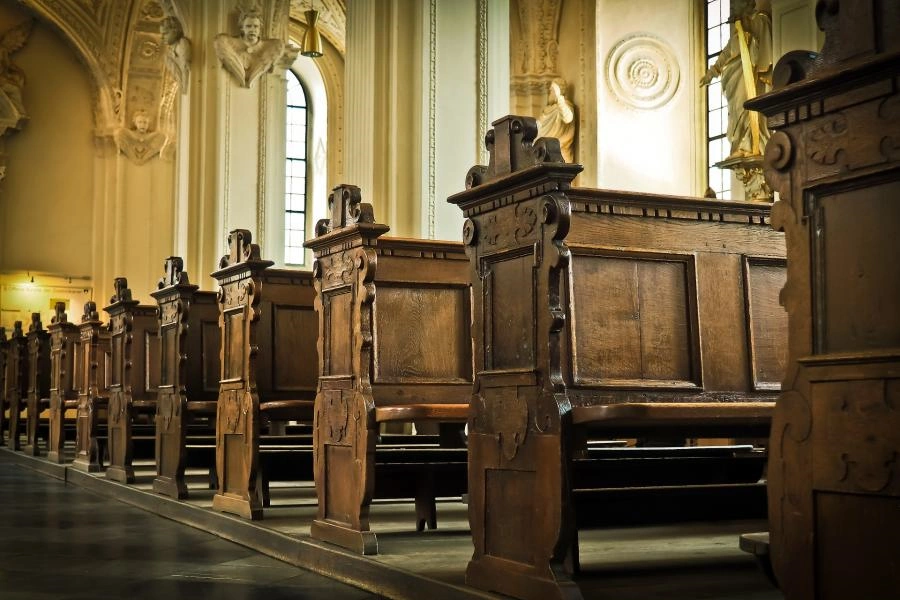Germany, a nation steeped in a rich tapestry of history, culture, and tradition, presents a fascinating panorama of religious practice and belief. At the apex of its spiritual landscape is Christianity, which dominates the religious scene, although this is nuanced by a growing trend toward secularism as well as the presence of diverse faiths. This article will unfold the complexities of religious life in Germany, while also reflecting on how these beliefs intersect with cultural identity and societal norms.
Christianity, predominantly represented by two major denominations—Roman Catholicism and Protestantism—provides the backbone of religious observance in Germany. The Protestant Reformation, initiated by Martin Luther in the 16th century, forever altered the course of Christianity and German society. As a result, the Lutheran Church became a beacon of religious and cultural identity in northern Germany, while Catholicism has maintained strong roots, particularly in the more southern regions such as Bavaria.
Statistics indicate that approximately 27% of the population identifies as Catholic, while about 24% designate themselves as Protestant, predominantly adhering to various Lutheran congregations. However, these figures are not merely numerical indicators; they signify a historical authority that has shaped ethical frameworks, communal bonds, and individual identities. Churches have served not only as places of worship but also as social institutions, partaking in charitable endeavors, community services, and dialogue surrounding moral issues.
Yet, as the 21st century unfolds, there is a palpable shift towards secularism in Germany. A notable influx of the ‘nondenominational’ populace marks this transition, with nearly 37% of individuals identifying as having no religious affiliation. This conundrum arises from various influences, including widespread access to education, urbanization, and the increasingly globalized culture that prioritizes personal choice over collective doctrine. Young people, in particular, are wrestling with traditional frameworks, often opting for self-definition rather than defined religious identities.
The implications of this movement towards secularism are multifaceted. For one, it raises significant questions regarding the role of religious institutions within the public sphere and how values are legislated in a society that increasingly prioritizes pluralism. Therein lies a fascinating observation: as the nation grapples with its historical roots, there is simultaneously a diminishing adherence to those very traditions. This reflects broader trends in post-modern societies where individualism is celebrated, sometimes at the expense of communal values.
The Jewish community also plays a notable role within Germany’s religious landscape, albeit in a smaller context. With a rich history dating back to the Roman times, the specter of the Holocaust looms large over Jewish life in Germany, casting a significant shadow. Contemporary Jewish practices and communities are marked by attempts to reconstruct a life that upholds heritage while navigating the complexities of modern existence. Interfaith dialogues and educational efforts are prevalent, signaling a desire for reconciliation and mutual understanding amidst historical grievances.
Islam represents another religious presence in Germany, particularly given the nation’s history of migration. With a substantial increase in the Muslim population owing to post-war labor migration agreements and, more recently, refugee resettlements, Islam has become an integral part of the social fabric. Current estimates suggest that Muslims account for approximately 5% of the overall population. Mosques have emerged across the landscape, acting as symbols of faith, community, and cultural exchange. This growth has not been without its challenges, often resulting in a polarized discourse around cultural identity, acceptance, and assimilation.
As one observes these dynamics, it becomes evident that the dialogue surrounding religion in Germany is not merely an exploration of belief systems but a deeper inquiry into the identity, cohabitation, and mutual respect that underpin societal functionality. Religion, in a Christian scholarly perspective, can be understood as an avenue toward connecting individuals to the transcendent. Yet, in contemporary Germany, the turn toward secularism conceivably represents a search for an interpersonal connection in a world often characterized by estrangement.
Moreover, the role of art, culture, and philosophy in shaping religious discourse cannot be overlooked. Literature, film, and other cultural forms fuel reflection on and critique of religious doctrines, raising moral and existential questions that resonate across boundaries. The works of German philosophers such as Hegel and Nietzsche compel individuals to confront the essence of belief and doubt, offering a fertile ground for exploration. Similarly, the arts function as a medium through which religious themes are examined, redefined, and often revitalized within the public consciousness.
The modern German religious landscape raises critical questions that touch the core of what it means to seek, believe, and exist within a community. Amidst the fluidity of belief, one finds an enduring quest for meaning—a fundamental aspect of the human condition that transcends mere categorical identification. As Germany continues to navigate the interplay between its rich Christian heritage and the realities of a pluralistic society, the ongoing conversation about faith, identity, and coexistence remains as fascinating as it is vital.
In conclusion, the examination of religions in Germany invites not only a recognition of diverse faiths but also an appreciation of the shared humanity that underlies these beliefs. In the pursuit of understanding, scholars and everyday individuals alike can engage in a dialogue that fosters respect, tolerance, and a deeper insight into the myriad ways people find purpose and connection in a rapidly evolving world.



